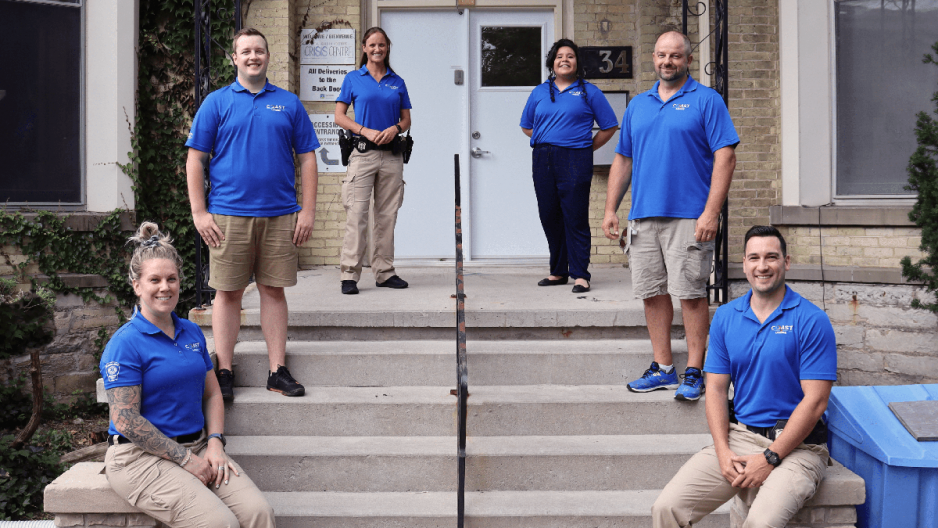Partnering to fill gaps in care
St. Joseph’s Health Care London has partnered with three community service providers to pilot the Community Outreach and Support Team (COAST) – an outreach and support service for individuals experiencing serious/acute mental health and addictions issues. Collaborating with St. Joseph’s are the Canadian Mental Health Association Elgin-Middlesex (CMHA), Middlesex-London Paramedic Service (MLPS) and London Police Service (LPS).
Building upon the strengths of each organization, COAST is addressing gaps in the system by improving collaboration between health care services and police.
“The main goals of COAST are to reduce police-led responses to situations in which an individual is experiencing a mental health/addictions related concern, reducing interactions with frontline LPS officers in these scenarios and hence, improving outcomes for these individuals by ensuring they receive the appropriate care,” says Deb Gibson, Director, Mental Health Care at St. Joseph’s.
In the course of caring for those who suffer from serious, persistent mental illness and addictions, there are times when the police are mandated by law to assist individuals in accessing mental health care. The COAST model facilitates specialized mental health care support for LPS, assisting them in carrying out mandated activities while improving the experience of those in need.
The team serves individuals 16 years of age or older living in the community with serious mental health issues and who are at risk of crisis due to addictions, poverty and/or homelessness. The purpose is to:
- Provide support through proactive intervention and follow up
- Assist individuals in navigating and accessing local mental health care services and programs
- Prevent unnecessary hospital emergency department visits
- Divert individuals from unnecessary involvement in the criminal justice system
- Decrease stigma of individuals living with mental health and/or addictions issues
- Build and maintain effective partnerships between police services and health care providers.
Teams work varying shifts, seven days a week. During a shift, each COAST team consists of two members: one COAST constable from LPS and one COAST health care provider from either MLPS, CMHA Elgin-Middlesex, or St. Joseph’s. Health care members consist of social workers from CMHA, paramedics from MLPS, and nurses from St. Joseph’s Assertive Community Treatment (ACT) Teams. Police COAST members are not in uniform and the team does not travel in a marked cruiser.
Due to the nature of their specialized and intensive work within the community, St. Joseph’s ACT health care workers are considered an essential element of the COAST team.
“As experts in engaging hard to reach individuals, St. Joseph’s COAST members have experience reaching out to individuals wherever they live,” explains Deb. “Whether it’s in a home or apartment, a group home, or if the individual has been displaced or are homeless, St. Joseph’s COAST members bring a sensitive and person-centred approach to their interactions for those in need of support.”
Individuals who may benefit from proactive COAST involvement are identified and referred through CMHA’s Crisis Services or through calls to LPS.
The one-year pilot project is anticipated to run until March 31, 2022. Over the course of the pilot year, the model of service delivery will be evaluated with the goal to secure sustainable funding.
